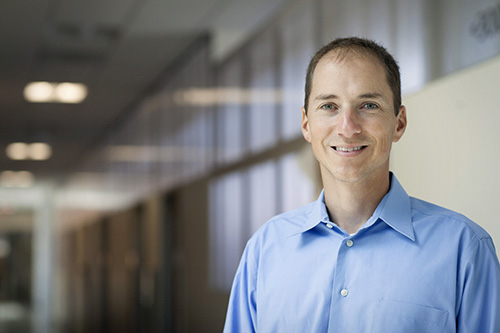It’s pretty fashionable to rail against the current food production system in the world, but it turns out there are agricultural data scientists out there — guys that work with Google on data sets and get Genius Grants and teach at Stanford — who believe the current structure is just fine, thank you very much:
Lobell, 36, says his students get upset upon learning their teacher supports the current food production system. Lobell explains that things like farmers markets, organic foods and buying local have little-to-no impact on whether someone in sub-Saharan Africa will be able to eat 20 years from now.
“The students are very interested in the topic and they’ve got very critical thinking, but when I give talks to general audiences the questions are sometimes from people with agendas, such as, ‘Aren’t you perpetuating the current system?’ and ‘Shouldn’t we all be farmers?’”
The answer is no, in his eyes.
His focus is basic on high-productivity agriculture — stuff that produces surplus — and in so doing, he’s had to involve himself with climate change discussions as well (because they are tied together, obviously).
Probably the most interesting point in the Forbes profile — which I believe was sponsored content — is this section about our eating habits in 20 years:
So what will we be eating in 20 years? Lobell says the most change will occur around protein, specifically animal protein. In the aggregate more animal protein will be consumed, Lobell says, but the developed world share of meat eating will decrease. Instead, people in developed nations will have a diet heavier in vegetable protein, due partly to health and partly to cost.
I’ve written about this before (here and here), and it’s a really interesting topic to me. By most estimates, the world was supposed to hold about 4 billion people. It holds about twice that. So how do we feed everyone? And how do we educate people about feeding others? (Look at his quotes near the top of this post — you always meet people at farmers’ markets who think that buying organic is saving the world. It’s not.)
I watched Forks Over Knives a couple of summers ago, and after I had watched it, I went to a bar in Houston to grab some food and a few beers. I ended up getting in a convo with the entire bar and the bartender about food production, food education, the evolution of the human body as a food consumer, etc, etc. It was super interesting. Everyone has views on this stuff, even if they don’t discuss it in their day-to-day life.
Back to Lobell for a second: he’s also a bit of a naysayer on food, arguing that corn and coffee may go away forever because of climate change. (Corn is maybe the most controversial topic around a banal thing in history; some people wouldn’t mind it going away.)
He’s also got a ton of videos like this on the Internet:
I think it would probably be a good thing for all of us to be eating less protein and more vegetables — but way beyond that, I think the biggest challenge of the next 100 years is figuring out how to (a) reduce oil consumption and (b) feed the world as the Earth warms. That explains, in part, why Tesla was a top-five stock of 2013 — and explains, in part, why Monsanto has a $57 billion market capitalization. There’s money in trying to solve problems — and/or in making them all worse.
